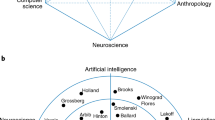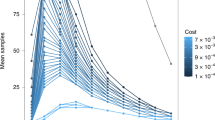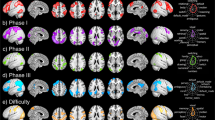Abstract
EMPIRICAL studies casting doubt on the IQ as an adequate summary of an individual's intellectual capacities1,2 have lent support to the increasing use of tests of “divergent thinking”, and to attempts to show that such tests are usefully related to academic achievement, especially in science3,4. These tests are distinguished from more conventional tests of intellectual capacity by the fact that they are designed to measure originality and flexibility. The older tests, by contrast, give greater emphasis to the finding of strictly logical, “correct” solutions. Two chief points about the newer tests can be emphasized: the first concerns their doubtful long-range validity, because it has not been shown that they correlate with later achievement in the way that ordinary IQ tests do5, and the second centres on Hudson's report6 that sixth form science specialists in British schools are usually convergent in their intellectual bias.
This is a preview of subscription content, access via your institution
Access options
Subscribe to this journal
Receive 51 print issues and online access
$199.00 per year
only $3.90 per issue
Buy this article
- Purchase on Springer Link
- Instant access to full article PDF
Prices may be subject to local taxes which are calculated during checkout
Similar content being viewed by others
References
Hudson, L., Contrary Imaginations (Methuen, London, 1966).
Gibson, J., and Light, P., Nature, 213, 4415 (1967).
Cropley, A. J., Alta. J. Educ. Res., 12, 51 (1967).
Cline, V. B., Richards, J. M., and Needham, W. E., J. Appl. Psychol., 42, 184 (1963).
Terman, L. M., Genetic Studies of Genius (Stanford University Press, Stanford, 1925).
Hudson, L., Nature, 198, 913 (1963).
Guilford, J. P., Amer. Psychologist, 5, 444 (1950).
Torrance, E. P., Guiding Creative Talent (Prentice Hall, Englewood Cliffs, 1962).
Author information
Authors and Affiliations
Rights and permissions
About this article
Cite this article
CROPLEY, A. Divergent Thinking and Science Specialists. Nature 215, 671–672 (1967). https://doi.org/10.1038/215671a0
Received:
Revised:
Issue Date:
DOI: https://doi.org/10.1038/215671a0
This article is cited by
-
Intellectual Style and High School Science
Nature (1968)
Comments
By submitting a comment you agree to abide by our Terms and Community Guidelines. If you find something abusive or that does not comply with our terms or guidelines please flag it as inappropriate.



